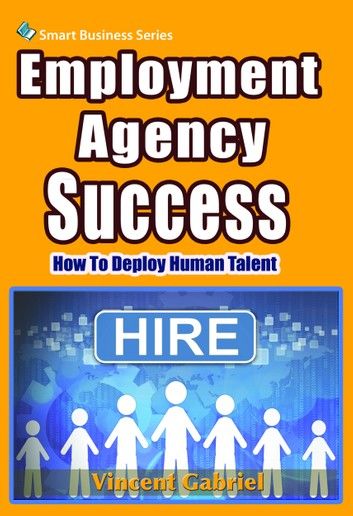| FindBook |
有 1 項符合
Employment Agency Success的圖書 |
 |
Employment Agency Success 作者:Vincent Gabriel 出版社:Rank Books 出版日期:2014-04-20 語言:英文 |
| 圖書選購 |
| 型式 | 價格 | 供應商 | 所屬目錄 | 電子書 |
$ 0 |
企業家精神與小型企業 |
|---|
| 圖書館借閱 |
| 國家圖書館 | 全國圖書書目資訊網 | 國立公共資訊圖書館 | 電子書服務平台 | MetaCat 跨館整合查詢 |
| 臺北市立圖書館 | 新北市立圖書館 | 基隆市公共圖書館 | 桃園市立圖書館 | 新竹縣公共圖書館 |
| 苗栗縣立圖書館 | 臺中市立圖書館 | 彰化縣公共圖書館 | 南投縣文化局 | 雲林縣公共圖書館 |
| 嘉義縣圖書館 | 臺南市立圖書館 | 高雄市立圖書館 | 屏東縣公共圖書館 | 宜蘭縣公共圖書館 |
| 花蓮縣文化局 | 臺東縣文化處 |
|
|
圖書介紹 - 資料來源:樂天KOBO 評分:
圖書名稱:Employment Agency Success
I enjoyed my stint in teaching employment laws and HR practice and policy to groups of students from the Trade Unions, the HR departments of multi-national companies and the personnel department of small and medium sized organizations.
I notice that there has been a lack of understanding of the trends in the development of the only one resource that Singapore has - human talent.
This book helps people who want to deploy human talent so that the potential of individuals can be fully utilized.
Success depends on:
• Knowing yourself and what you can do
• Knowing the business environment in which you operate.
The demand for the services of the employment agency is especially crucial in the next few years as the government undertakes a huge programme of public housing, infrastructure development and the completion of Terminals 4 and 5 and the development of the former Paya Lebar Airport into other uses. In 2013 an innovative step was taken to bring in Sri Lankan and Filipino workers who had been laid off with the ending of the building boom in the Gulf States. The young people of Singapore expect their employment agency to place them in jobs that are challenging and yet at the same time good sources of income
• Know what the main customer (the contractor/employer) and the secondary customer (the worker) want in the way the worker is deployed, the salary paid and the physical contribution made to the completed job that the ultimate customer pays for.
Employment Agency continues to enjoy success.
About The Author:
Vincent Gabriel has been teaching employment laws at various institutions to create union members, HR professionals and personnel managers.
He has written the Guide to the Employment Act (two editions) and a section of Acumen Guide to Employment.
Teaching Qualification:
-Advanced Certificate in Training and Assessment (ACTA)
-Certificate in Urban Education (Hong Kong)
-Certificate in Non-Formal Education (Philippines)
-B.Sc (Econs) Hons University of London External Degree.
-TTC Certificate in Education with Distinction in Comparative Education.
He has been the advocate of fair employment practice, as he believes that every person is special and it is the task of the supervisor, the manager and the organisation to achieve a rapport that allows the individual to give off his best.
The book is based on an enlightened humane approach to human capital management that is at once fulfilling and at the same time able to achieve the organisation's and society's aim for the individual.
I notice that there has been a lack of understanding of the trends in the development of the only one resource that Singapore has - human talent.
This book helps people who want to deploy human talent so that the potential of individuals can be fully utilized.
Success depends on:
• Knowing yourself and what you can do
• Knowing the business environment in which you operate.
The demand for the services of the employment agency is especially crucial in the next few years as the government undertakes a huge programme of public housing, infrastructure development and the completion of Terminals 4 and 5 and the development of the former Paya Lebar Airport into other uses. In 2013 an innovative step was taken to bring in Sri Lankan and Filipino workers who had been laid off with the ending of the building boom in the Gulf States. The young people of Singapore expect their employment agency to place them in jobs that are challenging and yet at the same time good sources of income
• Know what the main customer (the contractor/employer) and the secondary customer (the worker) want in the way the worker is deployed, the salary paid and the physical contribution made to the completed job that the ultimate customer pays for.
Employment Agency continues to enjoy success.
About The Author:
Vincent Gabriel has been teaching employment laws at various institutions to create union members, HR professionals and personnel managers.
He has written the Guide to the Employment Act (two editions) and a section of Acumen Guide to Employment.
Teaching Qualification:
-Advanced Certificate in Training and Assessment (ACTA)
-Certificate in Urban Education (Hong Kong)
-Certificate in Non-Formal Education (Philippines)
-B.Sc (Econs) Hons University of London External Degree.
-TTC Certificate in Education with Distinction in Comparative Education.
He has been the advocate of fair employment practice, as he believes that every person is special and it is the task of the supervisor, the manager and the organisation to achieve a rapport that allows the individual to give off his best.
The book is based on an enlightened humane approach to human capital management that is at once fulfilling and at the same time able to achieve the organisation's and society's aim for the individual.
|









